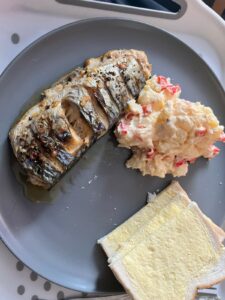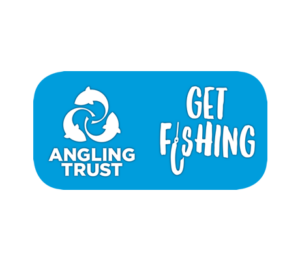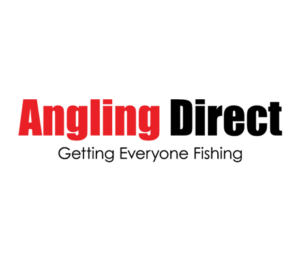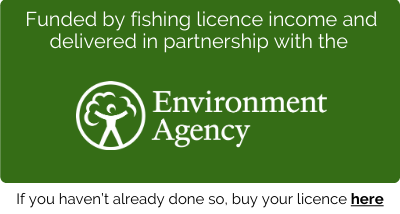
Get Fishing Blog
“My symptoms of severe mental health problems disappeared and all I thought about was the fishing” – angling project empowers participants to support their food security and mental health
Here’s an inspiring blog from Amelia Henderson at Bedlington Station Sea Angling Club. Amelia has been organising a women’s boat fishing group and supporting local military veterans with angling activities. An incredible example of how one person can be the catalyst for so many people to benefit from life-improving experiences simply by spending time fishing!
This article contains references to mental health issues and self-harm
My fishing club, Bedlington Station S.A.C, believes strongly in the role sea angling can play in supporting our local coastal communities live healthier lives, and in recent years we have worked with veterans’ groups to provide fresh fish as part of their free food programmes. The launch of the Together Fund, administered by the Angling Trust and Sport England was a great opportunity for us to support more participation, and share the social, economic and health benefits of sea angling with our local veterans groups and their families over the summer.
Much is written about the positive benefits of spending time in the coastal environment. Research suggests that the negative ions released by the breaking waves of the sea and the rhythmic sounds and movement of the waves has a calming effect on the brain that can improve mental health and wellbeing.
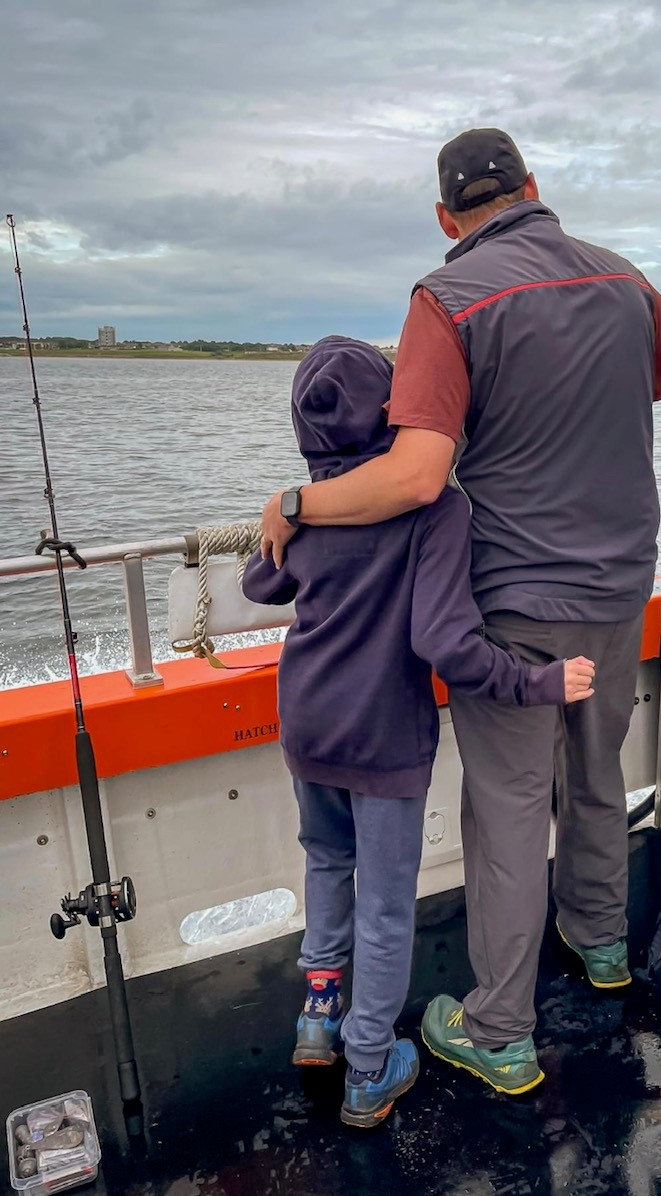
Working with Dave Munt from the Angling Trust, local veterans’ charities, Salute Her UK, Forward Assist and Anxious Minds, where over half of their users are living in food poverty, we devised a sea angling project that could not only support mental health and wellbeing, but also empower participants to support their food security through fishing.
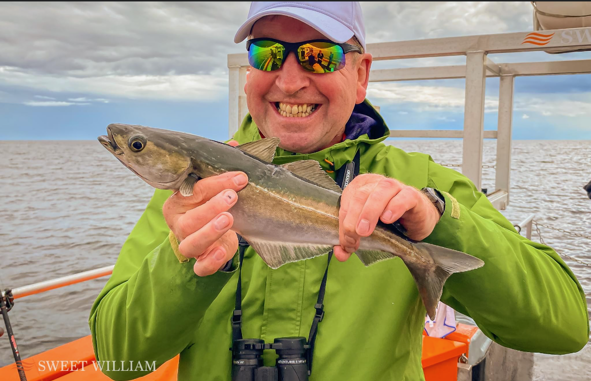
Using the funding, we partnered with North East charter boat, the Sweet William, to offer a series of sea fishing trips to veterans and their families, demonstrating how to catch, fillet and cook their own locally-caught fish.
Participants were encouraged to bring family members or friends to share the experience and to make lasting memories together and build confidence.
“as more fish were caught and the participants got used to the equipment, they were fishing pretty much independently by the end of each session”
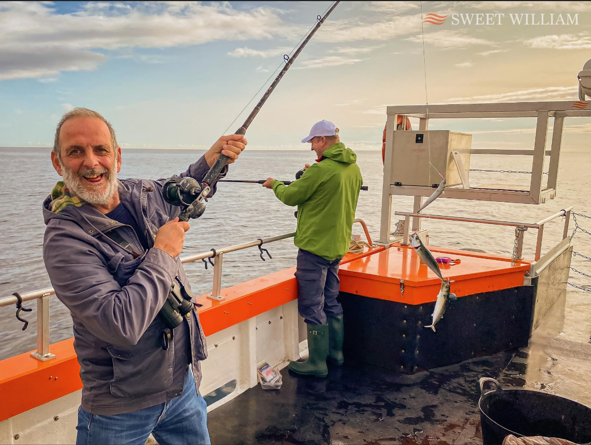
Before each trip, I delivered a pre-session safety briefing and tutorial with the equipment so that the participants weren’t overwhelmed once they were on the boat. At the beginning of each session, I helped to get the participants’ rods ready, tie rigs and weights and unhook fish as they came aboard. But, as more fish were caught and the participants got used to the equipment, they were fishing pretty much independently by the end of each session. This was a major aim as I wanted them to have enough knowledge and confidence by the end of the trip to book onto another charter boat following the project if they wanted to.
“fantastic sightings of wildlife, that included guls, gannets and over 30 dolphins on our final steam out of Tynemouth, which was an amazing experience”
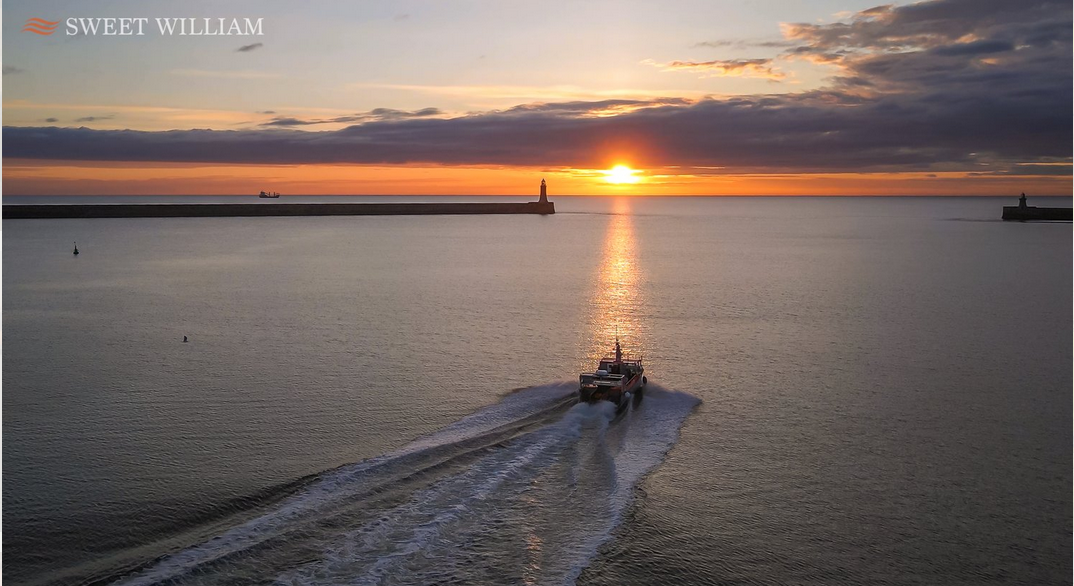
We saw some fantastic results with veterans and youngsters who were new to fishing, catching good sized pollock, mackerel and cod within an hour of being aboard. Participants were cleaning and filleting fish, when just a couple of hours before, they had never even held a fishing rod! We were also blessed with some fantastic sightings of wildlife, that included guls, gannets and over 30 dolphins on our final steam out of Tynemouth, which was an amazing experience!
Although there were some challenges with scheduling the trips thanks to the lack of the great British Summer, we managed to catch good numbers of fish to stock the freezers of the veteran’s recovery college café, and I am still receiving photos of meals cooked by the participants on my mobile phone!
Some of the veterans who came, (not pictured) had complex mental health issues and suffered with PTSD. The feedback provided was extremely positive, and there has been a request for more sessions next year. One participant said:
“On the two angling trips, my symptoms of severe mental health problems disappeared and all I thought about was the fishing”.
One of the charity’s counsellors who spends 6 days a week providing support to people with mental health problems and in suicide prevention, fed back that they felt a release of the emotional burden of the work they do, and felt energised to head back to work the following day.
Overall, I felt the project was a great success, with a long-lasting relationship built between our fishing club and the veterans’ charities across the North East. I hope to arrange further trips and hopefully a seafood BBQ if the weather allows!
“take note of the wide-reaching positive outcomes that simply spending time at sea with a rod in your hand can have”
We couldn’t have delivered these sessions without the Together Fund from Sport England via the Angling Trust, or the support from our skipper Geoff on the Sweet William, and we are extremely grateful to The Fishing Megastore who supported us with equipment. The anecdotal evidence for the impact of the blue-mind effect in my opinion is clear, I’ve witnessed it first-hand, and – with the opportunities of social prescribing – funders and policy makers should take note of the wide-reaching positive outcomes that simply spending time at sea with a rod in your hand can have.
Amelia
Amelia Henderson
Bedlington Sea Angling Club
www.bedlingtonstationsac.co.uk

This work is just one example of the regional outreach work that the Angling Trust is involved in funding and which assists diverse and less-represented communities in angling ,via programmes that work with the social prescribing network, the NHS, military veterans, disabled groups, ethnically diverse communities, migrant workers and women and girls.
Our Team of eight Regional Angling Development Officers would like to hear from your project and explain how going fishing can help address a wide range of social issues, and have health and wellbeing benefits. Please get in touch for information on funding available from sources such as the Get Fishing Fund, Together Fund, Fisheries Improvement Programme and Angling Improvement Fund for Biosecurity and Invasive Non Native Species and Predation.
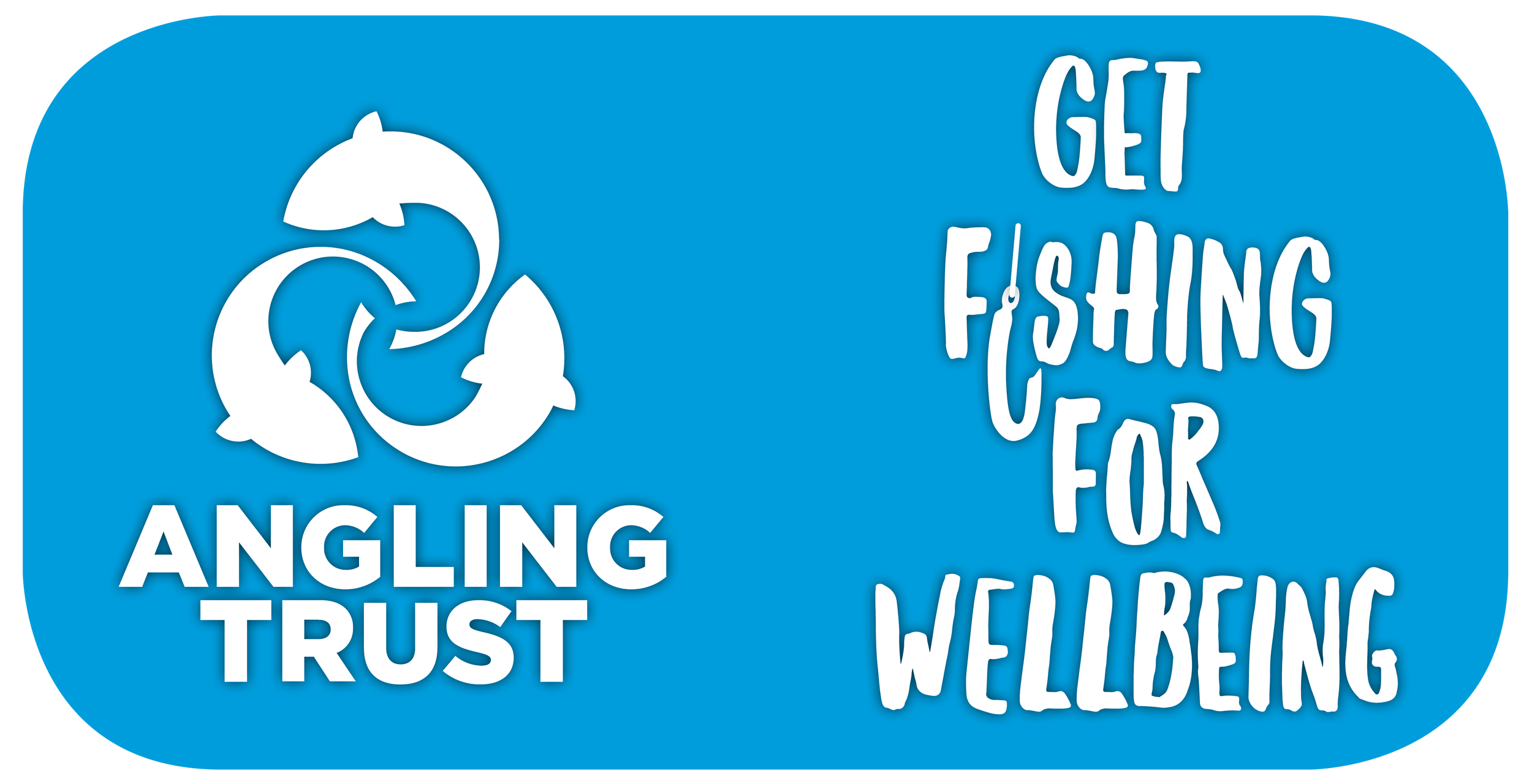
The Angling Trust’s ‘Get Fishing’ campaign is proudly supported by
Shakespeare, Exclusive Tackle Partner and Angling Direct, Exclusive Retail Partner
as we all work towards getting more people fishing, more often.
The Get Fishing campaign to get more people fishing more often is funded by the Environment Agency from fishing licence income as part of the National Angling Strategic Services contract with the Angling Trust, and Sport England. Children under 13 do not need a licence, and licences for children aged between 13 and 16 are free but you still need to register and receive a licence in order to go fishing. You can get a licence for the full year, for 8 days (ideal for holidays!) or just a day’s fishing.
NOTE: Although young children who are under 13 year old do not need a licence to fish, the person supervising them needs the proper fishing licence to take hold of the rod or to help the child fish with it.
Whatever you’re going through, a Samaritan will face it with you. They are there 24 hours a day, 365 days a year. Call 116 123 free of charge or find other ways to get in touch at www.samaritans.org
You might also like

BRONZE FOR ENGLAND VETERANS AS MASTERS AND DISABLED GO…

The Angling Mental Health Initiative’s Let’s Go Fishing events…

What to do if fish are gasping or spawning.…

WORLD CHAMPS GOLD FIRMLY IN THE SIGHTS OF ENGLAND…

We Fish as One supports Pride Month 2025

Sunglasses giant backs Angling Trust

Join in with the Check, Clean, Dry campaign this…

From TikTok to the classroom – Orchard School follows…
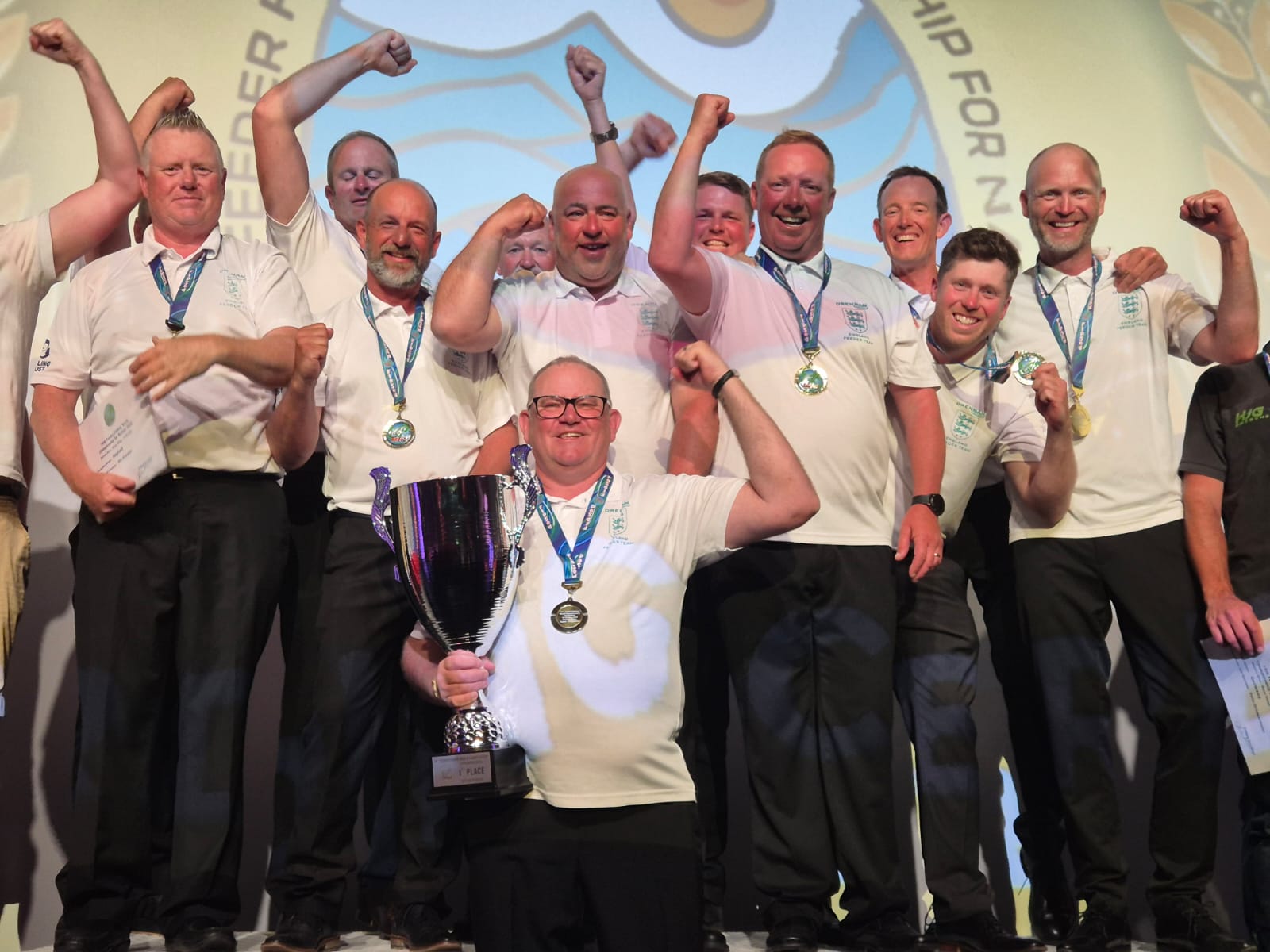
DRENNAN ENGLAND FEEDER TEAM WIN WORLD CHAMPS!

Family fishing at Aston Park Fisheries where have a…

Let’s Go Fishing By The Sea! – AMHI deliver…
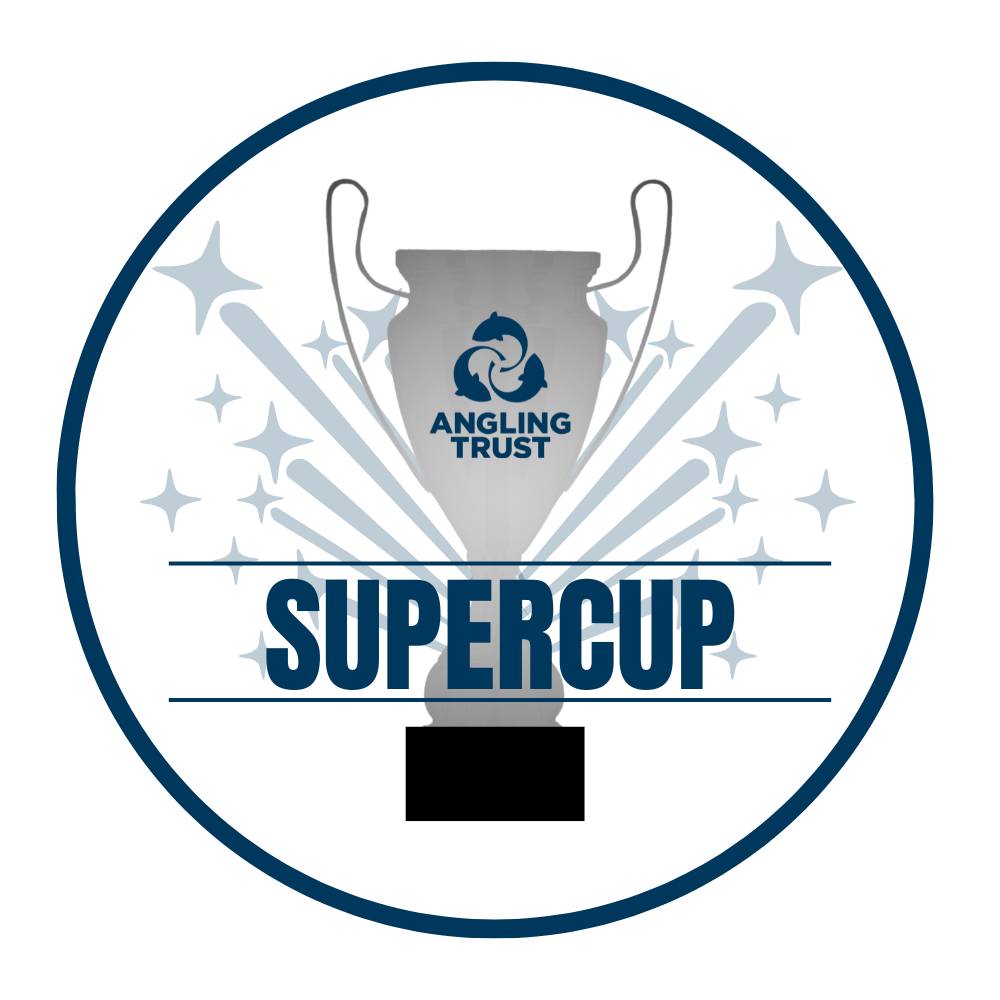
FOURTEEN SIDES ALREADY THROUGH TO SUPERCUP ROUND 2!

BRONZE FOR ENGLAND VETERANS AS MASTERS AND DISABLED GO…

The Angling Mental Health Initiative’s Let’s Go Fishing events…

What to do if fish are gasping or spawning.…

WORLD CHAMPS GOLD FIRMLY IN THE SIGHTS OF ENGLAND…

We Fish as One supports Pride Month 2025

Sunglasses giant backs Angling Trust

Join in with the Check, Clean, Dry campaign this…

From TikTok to the classroom – Orchard School follows…

DRENNAN ENGLAND FEEDER TEAM WIN WORLD CHAMPS!

Family fishing at Aston Park Fisheries where have a…

Let’s Go Fishing By The Sea! – AMHI deliver…

FOURTEEN SIDES ALREADY THROUGH TO SUPERCUP ROUND 2!

BRONZE FOR ENGLAND VETERANS AS MASTERS AND DISABLED GO…

The Angling Mental Health Initiative’s Let’s Go Fishing events…

What to do if fish are gasping or spawning.…

WORLD CHAMPS GOLD FIRMLY IN THE SIGHTS OF ENGLAND…

We Fish as One supports Pride Month 2025

Sunglasses giant backs Angling Trust

Join in with the Check, Clean, Dry campaign this…

From TikTok to the classroom – Orchard School follows…

DRENNAN ENGLAND FEEDER TEAM WIN WORLD CHAMPS!

Family fishing at Aston Park Fisheries where have a…

Let’s Go Fishing By The Sea! – AMHI deliver…










